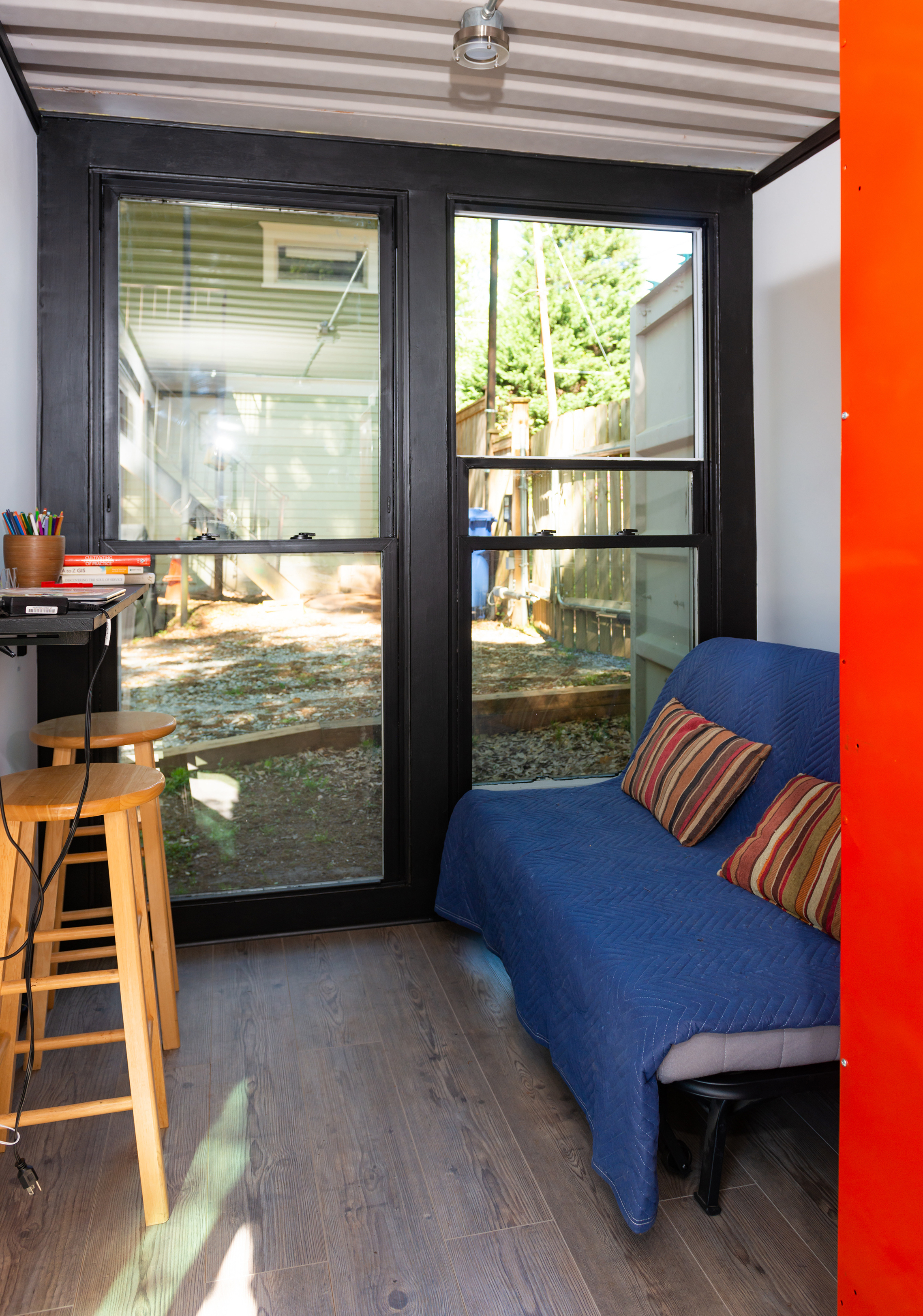In the first of our series of interviews with people around the world working to support inclusive cities , we talk to Wanona Satcher of Mākhers Studio in Atlanta

Based in Atlanta, Georgia, Wanona Satcher is founder and CEO of Mākhers Studio, a social enterprise design-build company which aims to deliver quality affordable housing, workspace and community facilities for underserved communities, supporting more equitable neighbourhoods. Satcher also set up ReJuve, a non-profit urban design lab dedicated to developing ‘prosilient’ (rather than simply ‘resilient’) communities. Thinking City talked to her to find out more.
What sparked your interest in working with urban communities trying to effect positive change?
I’m from Atlanta, GA, which is a very interesting urban community. Its rich history has a long legacy of civil rights, segregation, de-segregation and major shifts in wealth for communities of colour. It is this rich history that sparked my work today.
How would you define ‘prosilient communities’ and why are they so important in cities?
I coined this term to describe proactive approaches to urban development and policy. For years the notion of resilience has been used to support sustainable efforts in redevelopment; however these efforts are typically reactive and take place after displacement, natural disasters and those economic shifts that negatively impact low-wealth communities. On average, cities change every 20 years and with both historical data and future projections we should now know enough to proactively plan equity into every housing, transit and economic policy, land-use regulation and design standard.

Mākhers Studio focuses on shipping container spaces specifically – what are the benefits?
Used shipping containers are in abundance, easy to acquire, strong, stackable, and are highly adaptable to small urban lots – lots that often become the anchor to community blight and code enforcement violations.
To larger real estate developers these lots are often not seen as financial generators. We can design, build and deploy affordable housing as well as entrepreneurial spaces in half the time and for half the cost of traditional construction, while raising the value of these spaces. Utilising modular techniques allows for better quality control, efficiency, and a smaller carbon footprint. We love the re-use opportunity with shipping containers.
Also, we’re excited that our shipping container work provides an amazing platform to hire local tradesmen and tradeswomen. We’re helping under-represented communities build the change they want to see. In fact we prioritise hiring women, minority-owned subcontractors, LGBTQ and refugees to help build our Pods.

What sort of impacts have you seen from your work so far?
As a startup we’re finally gaining traction. We’ve had discussions with local city and county officials around the use of our containers as accessory dwelling units (ADUs), while many residents and stakeholders have told us that we’re helping them see and reimagine urban spaces differently. Also we’re not only educating the general public on modular container construction, but also architects and general contractors; many aren’t use to designing smaller spaces with smaller budgets that still produce a fair return.
How do you think local and national authorities can support greater community equality in cities like Atlanta?
By approving equitable land-use policies at the local county and city level; by redefining and increasing state and federal tax credit opportunities for affordable housing incentives in wealthy communities; by rethinking local building permit processes and fees, so that we in the private industry can continue to answer the call to produce more affordable options. Affordability isn’t just about the cost to the end user, it’s also about land costs and the cost to build; as well as the time to deploy.

What would your ideal Atlanta look like?
I often say that we at Mākhers Studio want to take over every 8ft around the globe in every major city. Shipping containers are 8ft wide. Imagine how many surface parking lots, strip malls, alleys, land adjacent to old rail lines are vacant; all spaces that we can make invaluable if we just think and build differently. We can do that.
I want to see quality, affordable rental container housing in wealthy Atlanta, as well as quality, affordable single-family container housing in lower-income neighbourhoods in Atlanta where under-represented families can build equity and continue to diversify the city without being displaced; where seniors can safely age in place. I also want to see more youth have access to affordable commercial container spaces so they can become Atlanta’s future entrepreneurs.
